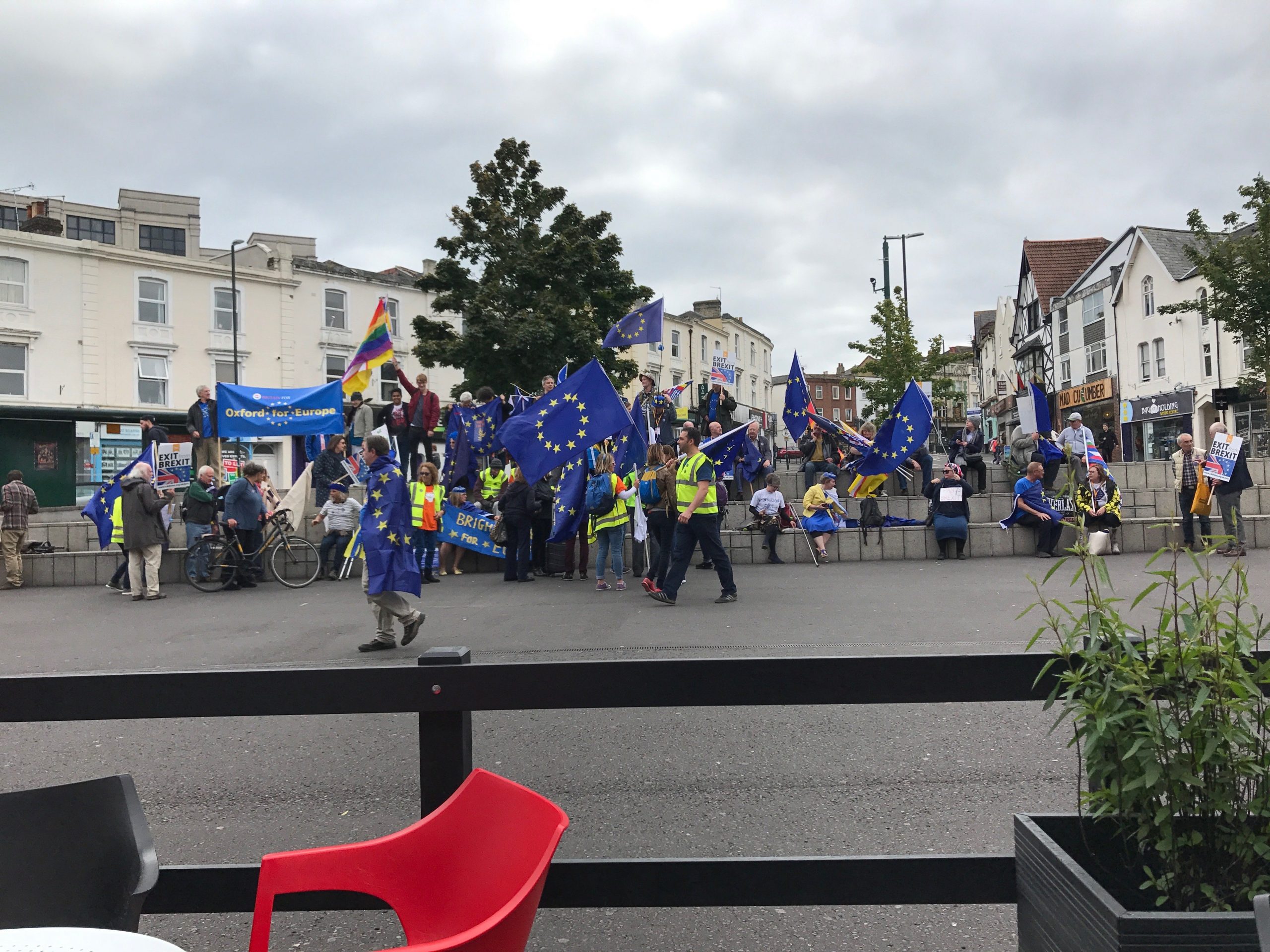The EU citizens have recently learned that on the day of UK’s exit from the EU without a ‘deal’, they could potentially find themselves in the risk of a legal limbo over their legal rights status in the UK.
What seemed as a tiny flame of certainty for EU nationals currently residing in the UK, has swiftly evaporated, when it has become clear, that in the case of ‘no deal Brexit’ scenario, the 3.5 million EU residents could be stripped of their health, social security and residency legal rights. As if this was not bad enough, this ‘eventuality’ also entails the lack of information about the government’s Settlement Scheme, that is due to be officially rolled out on the 30thof March 2019. This revelation is not boosting anyone’s confidence in the ‘hostile environment’ run Home Office, by any stretch of the imagination, thus far.
It is quite understandable, that to an untrained eye, this might look somewhat puzzling; But rest assured, it is not! According to the Bill of the Immigration and Social Security of the EU withdrawal 2019, section 8, part 3: an “appropriate authority may by regulation
…make provision to end rights to free movement of persons under retained EU law and to repeal other retained EU law relating to immigration; to confer power to modify retained direct EU legislation relating to social security co-ordination; and for connected purposes.
Any rights, powers, liabilities, obligations, restrictions, remedies and procedures which continue to be recognised and available in domestic law by virtue of section 4 of the European Union (Withdrawal) Act 2018, WILL CEASE to be recognised and available in domestic law”
Could this mean that all EU citizens living in the UK would be at risk of losing their current rights associated with freedom of movement, housing and social security?
A comprehensive report that was submitted by the UK’s Human Rights Joint Committee has warned that the current version of the Immigration Bill, could effectively remove the rights of long-term living European citizens in the UK after Brexit and this is because there are no assurances made by the Home Secretary to replace them in further legislation. The members of Human Rights Joint Committee argue, that the bill could put the EU citizens in “a precarious situation” as they would lose their rights to housing, social security and other free movement rights.
The letter written by MP Harriet Harman addressed to Home Secretary Sajid Javid MP in January this year, makes the following recommendations:
“The Committee is concerned that the main provisions of the Bill are removing their rights with no equivalent legislative protection in place, which raises significant human rights concerns. These provisions could leave individuals and families in a situation of precarity as to their futures, including housing, social security and property rights.”
The Home Secretary’s response to the concerns raised by the Joint Committee on Human Rights (JCHR) stated, that the government is committed in assuring the EU citizens’ rights and that their rights will remain protected after Brexit. However, Mr Javid pointed out that “the social security provisions in this Bill do not remove the rights of individuals but provide the framework to make changes to retained social security arrangements at the appropriate time, to ensure we (the government) can respond rapidly to whichever scenario we find ourselves in”.
The Joint committee report also highlights several concerns over the government’s proposed Settlement Scheme that should help the EU citizens living in the UK obtain a permanent settled status and guarantee their rights to remain unchanged after the UK leaves the EU. The Settlement Scheme became available for applications since the January 2019, when during the test period some 200,000 people have applied to have their settled status confirmed. According to the government website Gov.uk, the scheme is set to become fully operational by 30 March 2019.
The JCHR argues that the Settlement Scheme could pose difficulties for those UK residents who might not realise that they are required to secure a specific permit to continue living in the UK after Brexit. The JCHR documents that are publicly available on UK’s parliament website suggest that, “the EU Settlement Scheme does not adequately address the situation of those EEA Citizens resident in the UK who ought to be entitled to retain these rights, but perhaps were unaware of the need to apply to realise their rights.”
Could this mean that in the event of no deal Brexit the government can alter the immigration policy as they please?
Mrs Harman, in her letter, said that although the JCHR is delighted to hear about the government’s commitment to use its powers in human rights complaint form, the Committee remains concerned that the EU citizens could find themselves without the needed legislative protection, in order to maintain their current rights, should the UK leave the EU on no-deal terms.


Meanwhile, many anxious EU citizens are desperately searching for answers on how to prepare themselves for the UK’s withdrawal from the EU on social media platforms. People living in Dorset are understandably anxious and are desperately looking for reassurances that are so far in short supply.
“People are confused as what to apply for and when, many others have already left and many are deciding whether to stay or leave as the uncertainty of the Brexit puts pressure on them and their families”,says Marek (35) from the Facebook’s Czecho-Slovakian community forum in Bournemouth.
Jana (29) from Czech Republic is the bank manager and has now lived in the UK for past 16 years. She is worried about her future in the UK and is unable to go ahead with her plans of buying the property in Bournemouth.
“I would like to buy a flat here, but I am worried about what is going to come after Brexit. I don’t know whether to buy the flat or not, as I have no certainty about my future rights in this country. I love this place; it is my home and me and my British husband are struggling to plan our future life, as we don’t know whether to buy our flat here or in the Czech Republic. I am fed up with all this now; I just want to know if everything will be the same as it is now after the Brexit”.
Dusan from Slovakia who works as the auto mechanic and lives in London since 2006, explains that his application to Home Office for a permanent residence card has been rejected, because he could not provide the documents that the Home Office required from him to prove his continuous residency in the UK, due to a several large gaps in his employment history.
“I applied for the permanent residency document in 2017 and to support my application I gave the Home Office all the documents that I had, but it was not enough. I paid a £65 fee and after about 3 months I received the decision in which the Home Office refused to grant my permanent residency status, because, according what they said I had failed to provide a sufficient evidence that would prove my continued residency for the period of more than 5 years”.
37 years old Dusan says, that there was a time when he could not work for some longer periods of time, because he was unwell. He had to claim ESA for about three to four months during the time he was incapacitated. He is now also worrying that if he applies again through the EU Settlement Scheme, the result might be the same.
“I don’t know what to do, I have my whole life in the UK. I work and study here and I cannot imagine going back to Slovakia after all these years. I have my life and my friends here. I cannot imagine starting my life over again back in Slovakia, this is simply not an option for me”, says Dusan.
A Home Office spokesperson provided the following official response:
“The government has already committed to protecting the rights of the millions of EU citizens living in the UK.
“We want them to stay and, whatever the outcome of the ongoing discussions about our exit from the EU, we will protect their rights and ensure they get the UK immigration status they need.
“The EU settlement scheme is designed to be as simple and straightforward as possible and during testing more than 200,000 people have applied. Today we launched a nationwide marketing campaign to encourage EU citizens to apply for the scheme, with other activity planned over the next two years to ensure people understand what they need to do” (Home Officemedia.blog.gov.uk).
All in all, despite the PM’s long litany of reassurances, the JCHR warnings as well as increasingly growing EU citizens’ concerns, the government continues to maintain its firm stance on the future of Immigration Policy after the Brexit. The statutory instrument designed to guarantee the EU citizens rights remains unchanged and the amendments proposed by the JCHR have, as of yet, not taken its legal effect.
The EU citizen’s legal predicament remains a subject of the House of Commons ability to find a common consensus to move away from the current Brexit deadlock.
Whilst the prospect of the United Kingdom leaving the European Union without a deal remains increasingly likely, the UK Parliament will need to come forward with a credible alternative to Brexit ‘impasse’ very soon.
What next for the EU citizens? Whilst the ‘Brexiteers’ are busy ‘taking back control’ and the ‘Remainers’ are preoccupied by demanding the revocation of article 50, it is perhaps wise to suggest that the EU nationals continue checking the official instructions provided on the government websites and remain calm.
After all, it seems that in Mrs May’s own words “nothing has changed”, nothing has actually changed.
This feature article was written by multi-media journalist
Ondrej Zak
The names in this article were changed on the request of individuals to protect their identity.












